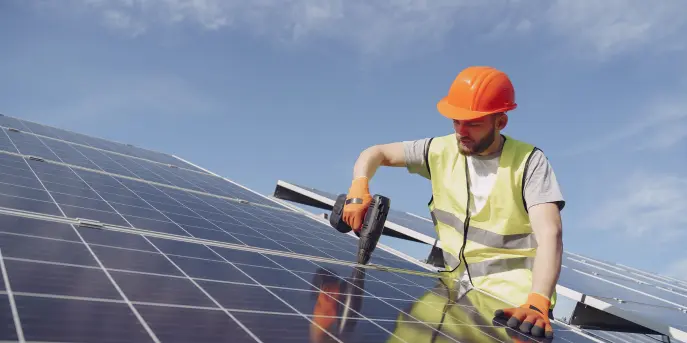Fort Myers, Florida, is an ideal spot for harnessing the power of the sun. With its ample sunshine and favorable policy environment, the region offers significant advantages for solar energy adopters. This guide provides an in-depth look at the entire process of installing solar panels in Fort Myers, from initial consideration to system maintenance.
The Benefits of Going Solar in Fort Myers
- Environmental Impact: Solar energy is one of the cleanest sources of power available, reducing reliance on fossil fuels and decreasing carbon emissions.
- Energy Independence: Generating your own electricity means less dependence on local utility companies and protection against fluctuating energy prices.
- Financial Savings: Although initial installation costs can be high, the long-term savings on energy bills can be substantial due to Fort Myers’ high rate of sunlight exposure.
- Increased Property Value: Homes with solar energy systems often see increased market values, making solar installations a worthwhile investment.
How Solar Panels Work
Solar panels are made up of photovoltaic (PV) cells that convert sunlight into electricity. This section explains the technology behind solar panels and the typical components of a solar power system, including:
- PV Cells: The basic units of solar panels that convert light into electrical current.
- Inverter: Converts the direct current (DC) output of solar panels into alternating current (AC), which is used by most home appliances.
- Battery Storage: Optional but useful for storing excess energy, especially useful during power outages or at night.
- Solar Metering: In net metering systems, homeowners can send excess electricity back to the grid in exchange for billing credits, lowering the overall cost even more.
Step-by-Step Guide to Installing Solar Panels
- Initial Consultation: Contact a certified solar installer to evaluate your home’s suitability for solar power, considering factors like roof condition, orientation, and shading.
- Design and Planning: The installer designs a system tailored to your home’s architecture and your electrical needs.
- Permits and Documentation: Obtaining the necessary permits from local authorities is essential to ensure compliance with building codes and regulations.
- Installation: Professional technicians will install the solar panels, typically on your roof. This process includes setting up the inverter, batteries (if applicable), and connection interfaces.
- Inspection and Connection: After installation, the system must be inspected by local officials. Once approved, it can be connected to the local electrical grid.
- Activation: Your installer will activate the system, and you can start generating your own electricity.
Financing Your Solar Panels
The cost of solar panels has decreased significantly, but the upfront investment can still be considerable. Various financing options are available:
- Direct Purchase: Pay for the system upfront and enjoy the benefits of ownership, including tax credits and increased home value.
- Solar Loans: Similar to home improvement loans, these are specific to solar installations and can offer competitive rates.
- Leasing: You can lease a solar system with little to no upfront costs and pay a monthly fee for using it.
- PPAs (Power Purchase Agreements): You agree to purchase the power generated by the system at a set rate, which is usually lower than the local utility rates.
Maintenance and Longevity
Solar panels are relatively low maintenance. Regular tasks include cleaning the panels a few times a year and checking for any physical damages or efficiency issues. Most solar panels come with a warranty of 20-25 years, during which they are expected to operate at no less than 80% of their rated capacity.
Conclusion: Installing solar panels in Fort Myers is a smart investment that pays dividends in both environmental and economic terms. With the right preparation and a knowledgeable installer, homeowners can enjoy decades of clean, low-cost energy. This guide aims to provide you with the necessary knowledge to start your journey toward solar adoption, helping you to make an informed decision that aligns with your energy needs and financial goals. As the technology advances and more incentives become available, solar power continues to be an attractive option for those looking to reduce their carbon footprint and utility expenses.
Also Read = The Ultimate Guide to Solar Panel Installation
